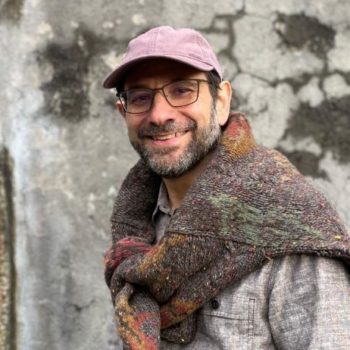Especially after the long week of keeping kosher for Passover, it’s easy to think of certain Jewish rituals as burdensome. Sometimes you can only eat certain foods. Sometimes you can’t eat anything at all. Sometimes you don’t turn on your computer until the sky is dark. But so much of what we practice is about what we need as humans to survive and thrive, and as odd as it may sound, that includes how we understand and deal with death.
Before the global pandemic, most people in developed nations didn’t think much about plagues. Clean water, sewage infrastructure, refrigeration, and decent basic medical care ensured that the scourges of the Bible and Middle Ages seemed like a distant memory. Because of that, the extended passages in Leviticus about Biblical leprosy often struck a modern reader as antiquated, bizarre, or completely irrelevant. We now recognize that humanity may never escape periodic plagues
It’s not just our outward words and actions that can cause harm, but our inner thoughts as well. Just as our actions can have a significant impact on others, the way we treat ourselves - physically and emotionally - can take a toll. We must strive to act with kindness and compassion towards others and ourselves, recognizing that it’s not just the wellbeing of others that’s at stake, but also our own.
Before the global pandemic, most people in developed nations didn’t think much about plagues. Clean water, sewage infrastructure, refrigeration, and decent basic medical care ensured that the scourges of the Bible and Middle Ages seemed like a distant memory. Because of that, the extended passages in Leviticus about Biblical leprosy often struck a modern reader as antiquated, bizarre, or completely irrelevant. We now recognize that humanity may never escape periodic plagues
In the ancient Tent of Meeting, five types of offerings were brought before God: burnt offerings (Olah), grain offerings (Minchah), peace offerings (Shelamim), sin offerings (Chatat), and guilt offerings (Asham). Our ancestors brought these sacrifices to address their needs. Sometimes they needed to make amends, assuage their feelings of guilt, connect with God, or express gratitude. We no longer bring material sacrifices, yet we share a common humanity. Our needs have not changed, only how we seek to fulfill them.
Like many Torah portions, there’s an inherent contrast in the text we read this week. If the time following childbirth requires a certain period of purification, that implies that giving birth is an impure act in some way. Yet could there be a more God-like experience than childbirth?
When we get so much of our information from social media and online “news” sources it’s more important than ever to verify and validate before we take what we read as fact, or we risk “strange fire” by spreading misinformation.








